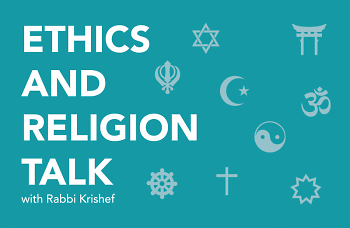The Reverend Colleen Squires, minister at All Souls Community Church of West Michigan, a Unitarian Universalist Congregation, responds:
“Unitarian Universalists are strong believers in science. Any conversation regarding vaccination would be science based and not religiously based. I would say a very large number of UUs support vaccinations for themselves and for their children. And we support all healthcare decisions made between a patient and their health care provider. It is also true there are a small number of UUs who embrace holistic or alternative healthcare practices, I am not sure if they would support all vaccination but that would be an ingredient based and not a religiously based decision.”
The Rev. Steven Manskar, pastor of Trinity United Methodist Church in Grand Rapids, responds:
“When Jesus was asked, ‘Teacher, which commandment in the law is the greatest?’ He said to him, ‘You shall love the Lord your God with all your heart, and with all your soul, and with all your mind. This is the greatest and first commandment. And a second is like it: You shall love your neighbor as yourself. On these two commandments hang all the law and the prophets’ (Matthew 22:36-40).
“God gave human beings minds with the ability to gain knowledge. Humans honor the first commandment by using their mind to pursue knowledge that leads to the alleviation of the neighbor’s illness and suffering. God gave humans ingenuity and technology to serve and protect human life and community. Vaccines are God’s gift to protect humankind from the ravages of life-threatening diseases. They protect and preserve life and prevent human suffering.”
“Yes, by all means, Christians should be vaccinated and vaccinate their children.”
Father Michael Nasser, who writes from an Eastern Christian perspective and is Pastor of St. Nicholas Orthodox Christian Church, responds:
“I see this question as a false dichotomy between trusting in God and using the means that He provides. The issue of vaccination is a complicated one but it seems this question is more about how God brings healing. We have a long tradition in the Orthodox faith of Physicians who dedicated themselves both the study of Medicine and the pursuit of healing through prayer and spiritual efforts, from Jesus Himself, Whom we call ‘the Physician of Soul and Body,’ through St. Luke, the Gospel writer and many others. A 20th century Orthodox Bishop, also named Luke was jailed and punished multiple times by the Soviets, but was also a highly-skilled and respected physician. A quick Google search of ‘St. Luke of Simperofol’ will illustrate how the seeking of healing through the medical arts and the power of prayer are not two different efforts, but two sides of the same coin.”
Father Kevin Niehoff, O.P., a Dominican priest who serves as Judicial Vicar, Diocese of Grand Rapids, responds:
“The medical knowledge present in the world today is truly a gift from God! The Catholic Church teaches that the common good includes the ‘requirement that society help in the attainment of the living-conditions that allow human beings to grow and reach maturity: food and clothing, housing, health care, basic education, employment, and social assistance’ (Catechism of the Catholic Church, p. 552).
“Yes, Christians should be vaccinated unless there is a health condition, e.g., severe allergic reactions to an ingredient or ingredients in vaccines, or a moral problem with the manufacturing of a vaccine (e.g., the use of cells from a recent abortion). God’s providence includes the human intellect which provides for the development of the knowledge to not only provide the structure that helps people attain the living conditions above but also the knowledge to prevent illness and provide a high quality of life for all human beings.”
Linda Knieriemen, Senior Pastor at First Presbyterian Church in Holland, responds:
“To trust in God means to trust in the life-giving gifts and skills God has given humanity through science, medicine, and technology. God works through God’s creation, so yes, God is working in and through the creative process of developing life-giving vaccines and treatments. Is God capable of protecting you and me from disease solo? Yes, but I consider this as ‘putting the Lord you God to the test.’ If for reasons of preexisting conditions making the risk of receiving a vaccine greater than the risk of contracting a life-threatening disease then yes, trust that God’s providence also provides health with other preventative practices. Jesus would wear a mask and preach from a distance!”
My response:
And for a non-Christian voice of agreement: Judaism typically doesn’t speak with a single voice, but on this issue I have not come across a single Jewish authority who is not urging his or her community to get vaccinated. In the opinion of many authorities, including those in my movement, it is a mitzvah, a obligation.
This column answers questions of Ethics and Religion by submitting them to a multi-faith panel of spiritual leaders in the Grand Rapids area. We’d love to hear about the ordinary ethical questions that come up in the course of your day as well as any questions of religion that you’ve wondered about. Tell us how you resolved an ethical dilemma and see how members of the Ethics and Religion Talk panel would have handled the same situation. Please send your questions to
[email protected].
The Rapidian, a program of the 501(c)3 nonprofit Community Media Center, relies on the community’s support to help cover the cost of training reporters and publishing content.
We need your help.
If each of our readers and content creators who values this community platform help support its creation and maintenance, The Rapidian can continue to educate and facilitate a conversation around issues for years to come.
Please support The Rapidian and make a contribution today.
